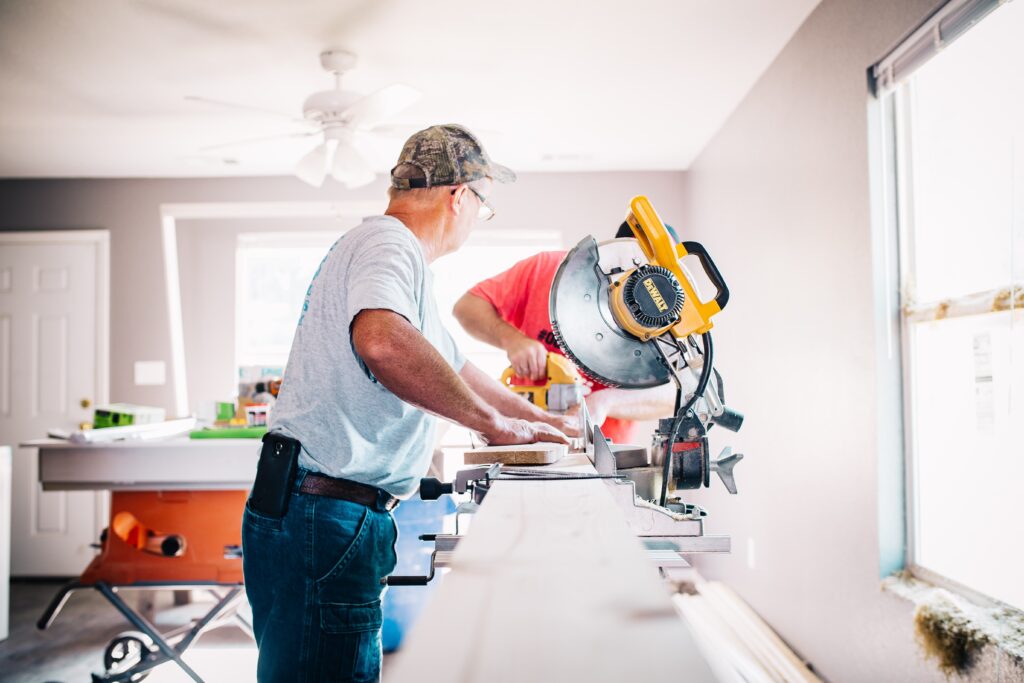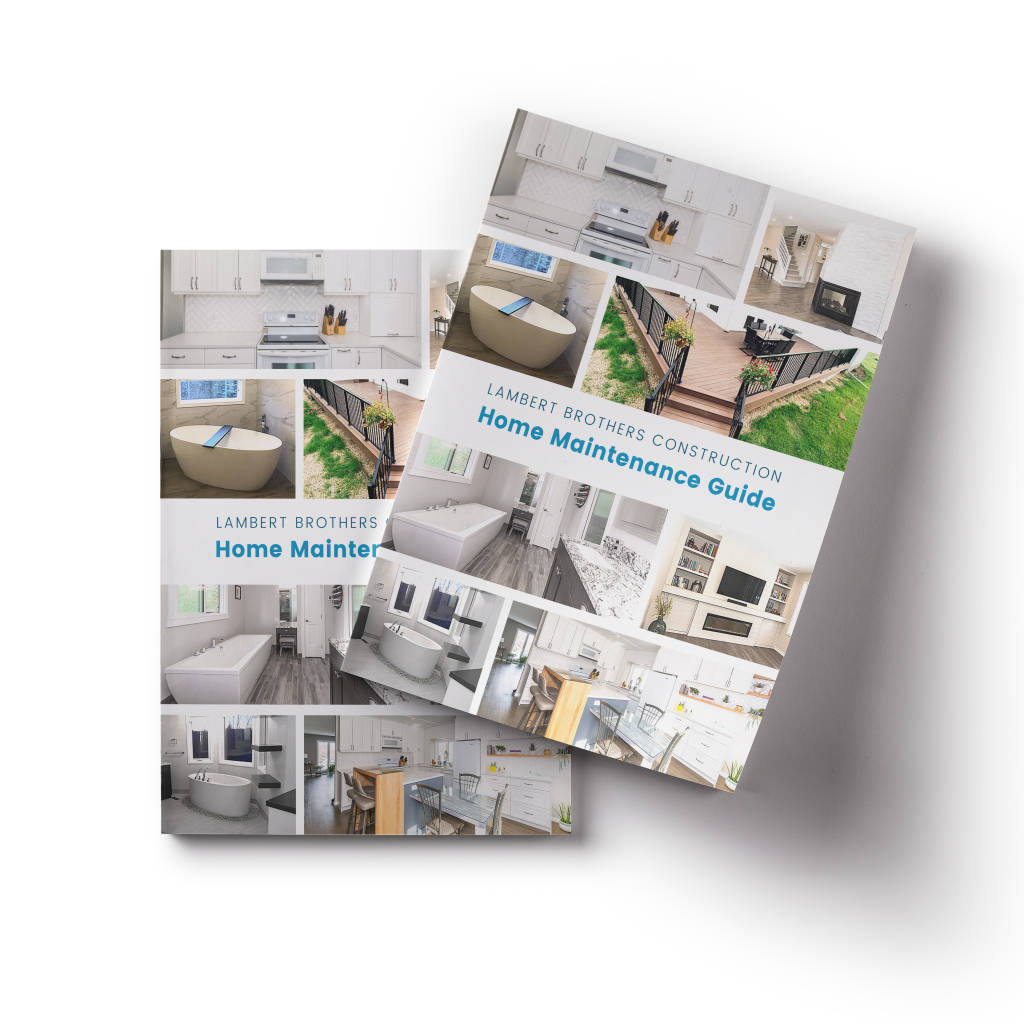There’s a myth among homeowners, renovators and other professionals that renovating a home will increase its value, allowing owners to sell it for a great profit. This might be supported by your favourite renovation show on television, but reality often paints a different picture.
In the Edmonton area, the fact is that your home will increase in value by the cost of materials used. You will not retreive the cost of labour immediately, and you should know that the cost of labour is approximtely 50-60% of most renovations. Therefore you should expect a 45% percent return on a profesionally finished renovation not 110% as your TV show might suggest.
Here’s the truth.
Over renovating is just as much a problem as not renovating enough.
When trying to sell a property, not every dollar spent on a renovation will bring a return. A common misconception is that you will get a full return on your investment when you sell your home, but it usually doesn’t work out that way.
Renovating helps you sell faster — not for more profit.
It is a well known fact that a house that is well maintained will likely sell much fatser than a house that is run down, or has signs of neglect. You may be forced to sell your property for much less than you were wanting to if its an eyesore to potential buyers. Or you may be forced into getting rid of an eyesore simply to sell the home.
The trick to avoiding over renovating is to choose your improvements carefully, focusing on maximizing the return on your investment, while picking projects suited to your goals.
For example, if you plan to stay in your home a long time, choose renovations to improve or maintain your quality of life (a new roof, energy efficient windows or appliances). If you’re flipping a home or otherwise renovating before a sale, focus on simple renovations that provide buyers opportunities to customize the results (paint, flooring, counters).
Here are 5 tips to help you avoid over renovating:
1. Know your neighbourhood.
If you’ve lived in your home for some time you’re probably already familiar with the houses for sale and the new buyers moving into the area. Are they young families? Mature adults?
To avoid over renovating, spend some time driving around the neighbourhood to see what’s currently on the market. Take a tour or drop into an open house if you can! This will give you a great baseline for what features buyers are looking for, who is buying in your area, and how much they are spending on a home.
When you understand who typical buyers are in your area and what they’re looking for, you can choose smart renovations to open your home to the market! For example, by moving the laundry to the main floor from the basement, you could make your home more attractive to mature buyers looking for less stairs.
Be careful not to invest too much into renovations if your neighbourhood is not appreciating in value at a quick enough rate.
Smart renovations tailored to potential buyers in your area will help you avoid over renovating.
2. What are buyers really looking for?
While you’re already paying attention to your neighbourhood, it pays to think about how people use their space so you can choose smart renovations that will attract the most buyers.
Open space is always on trend! Increase the appeal of older homes by removing unnecessary walls and combining spaces like the dining and living rooms.
With the advent of working from home, many buyers are looking for home office space. If you can’t add an office, consider staging a space in your home to fill the need.
Over renovating often = choosing very specific renovations that don’t reflect what buyers are looking for. Ideally, renovations should have a large market appeal. That kickplate retractable doggy dish is pretty cool, but it’s going to be completely unappreciated by a buyer without pets.
Now, energy efficient windows — most buyers are looking to save on their electricity bills.
Not all renovations are flashy, and that’s okay.

3. Materials matter.
Your choice in finishing materials could make a big difference to how attractive your house is to new buyers. In fact, high-end finishes might be expected if the average selling price in your neighbourhood is high.
According to Add Value to Your Home, under renovating is a danger if you don’t have the funds to renovate to the level of finish your neighbourhood requires. In that case, it’s best to wait, or let the buyer take on that particular renovation themselves. Buyers will often prefer a blank slate to ripping out or refinishing a recent renovation.
On the flip side, over renovating happens when you spend too much on your renovation by choosing high-end finishes, customized solutions, and other improvements that aren’t necessary for your buyer, leading to a loss of profits when you go to sell.
Does it feel like you’re trapped between a rock and a hard place?
Don’t worry, this is where knowing the comparables in your neighbourhood will come in handy. Are other houses for sale in your area boasting granite countertops? Are all the houses on your street showing off lucious landscaping? The key to avoid over-renovating is to be smart with where you allocate your money.
Here are a few suggestions from House Beautiful to help you choose the most desirable finishes for most buyers:
- Cabinets and faucets become outdated quickly, and with new cabinets come new counters. Materials like quartz, which are long lasting, neutral and trendy, will stay in style longer.
- For backsplashes, ceramic and porcelain tile are preferred.
- If you’re considering changing out the flooring, go for hardwood. It’s more popular than tile or engineered wood. Luxury vinyl planks are also very popular today and are very price friendly
4. Don’t neglect the outdoor space.
Speaking of lucious landscaping, don’t forget your outside space!
House Beautiful suggests outdoor spaces have a high return on investment. Simple renovations, like painting your garage door, hold the best value because they are relatively cheap to do, and make the home look cared for and fresh.
Because decks don’t last as long (bearing the brunt of mother nature) sprucing up your deck or adding a new deck can make a big difference for buyers who see instant value in enjoying the extra outdoor space right away and not having to do it themselves.
Similarly, an old, shoddy looking roof can scare off buyers who know they’ll have to replace it right away at large expense.
5. Stay within the market!
Pay attention to the average price for homes near you, as well as how long it takes for homes to sell. This pivotal information will guide how much you spend on your renovation, and how much you plan to sell your home for.
Add Value to Your Home explains, “…profit potential is the difference between what your home could be worth among similarly renovated homes in your neighbourhood MINUS what your home is actually worth in its current condition, LESS ALL costs associated with doing the reno.”
The best way to calculate your profit potential is to have a trusted Real Estate Appraisor do an appraisal of your home before you start renovating. Their guidance on what is realistic in your market right now can help you make smart decisions to prevent over renovating by putting funds where they’re needed, not just where they’ll be seen during an open house.
A final word: A great way to avoid over renovating is to do some of the work yourself. But be cautious! Renovations need to be done right otherwise inexperience will show in the finished product, and buyers are smart enough to pick up on bad workmanship.
From Add Value to Your Home: “Make sure the DIY looks like a professional job. If the DIY project doesn’t look professional, you could actually be devaluing your home.”
If you’re having trouble deciding what renovations are necessary for your home, and what might be considered over renovating, we would love to chat. At Lambert Brothers Construction, we’re more than just a contractor — we’re your trusted advisor and friend. Get in touch with us today!

